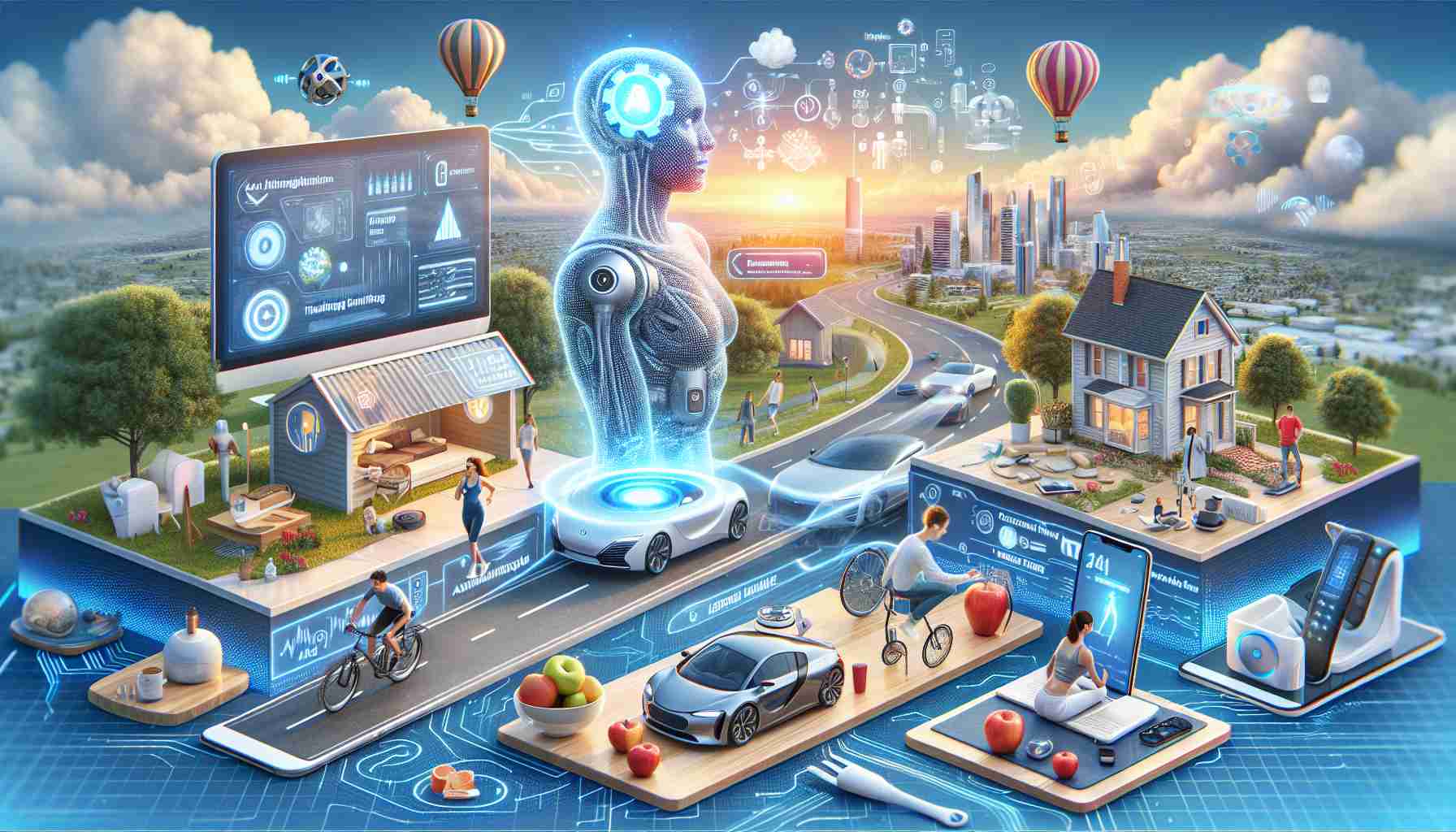- AI is integrated into daily life, often operating unnoticed yet significantly impacting routines.
- It enhances convenience by personalizing experiences, such as remembering favorite orders at coffee shops.
- AI optimizes travel with GPS systems that provide the fastest routes, conserving time and resources.
- Online shopping is tailored through AI algorithms that predict consumer preferences.
- Streaming services utilize AI to recommend content based on viewing habits, enriching entertainment options.
- In healthcare, AI is improving diagnostics, leading to faster and more accurate life-saving solutions.
- Overall, AI is a transformative force that enhances daily experiences and well-being.
Imagine waking up in a world where Artificial Intelligence (AI) is seamlessly woven into the fabric of your daily routine. Even if you think you’re living a tech-free life, AI is quietly shaping your experiences and decisions, often behind the scenes.
From the moment your alarm goes off to your last evening scroll through social media, AI is there, influencing choices and optimizing outcomes. Ever wondered how your morning coffee shop remembers your favorite order? That’s AI analyzing data from previous visits, making your life just a bit easier.
Even while driving, AI is hard at work. GPS systems use AI to provide the quickest routes, saving you time and gas. Meanwhile, your online shopping experiences are tailored through smart algorithms that know what you like before you do. It’s almost like having a personal shopper!
As you unwind with streaming services, AI curates recommendations based on your viewing habits, ensuring you never run out of fresh entertainment. And in healthcare, AI is revolutionizing diagnostics, leading to quicker, more accurate results that can save lives.
The takeaway? AI is not just a digital phenomenon; it’s an indispensable part of your life that enhances convenience, safety, and enjoyment. Embrace the invisible innovations surrounding you and see how they elevate your everyday moments!
Unlocking the Future: How AI is Transforming Everyday Life
Artificial Intelligence (AI) has permeated our lives in ways we often overlook. From streaming services to healthcare, its influence is profound and ever-growing. Here’s a deeper exploration of how AI shapes our mundane routines, enhances convenience, and pushes forward innovations we can’t yet fully grasp.
New Insights into AI Integration
# Innovations in Daily Life
AI is evolving rapidly and integrating into even more aspects of our life. New applications include:
– Smart Home Devices: AI-enabled devices like smart speakers (e.g., Amazon Alexa, Google Home) learn user preferences and routines. They can adjust settings for lighting, heating, and even brewing coffee with minimal input.
– Personalized Fitness Tracking: Wearable fitness technology utilizes AI to analyze user data and provide tailored health recommendations based on daily activity levels, sleep patterns, and nutrition.
– Automated Customer Service: Many businesses are deploying AI chatbots that enhance customer engagement. These bots can efficiently handle inquiries and provide personalized assistance 24/7.
# Market Trends
The AI market is projected to grow rapidly, with research indicating it will reach a value of $390.9 billion by 2025, which represents a CAGR of 46.2% from 2020. Major drivers include advancements in machine learning, increasing demand for automation, and rising cloud-based AI applications.
Key Questions About AI’s Role in Our Lives
1. How is AI improving healthcare?
AI is significantly enhancing healthcare by:
– Predictive Analytics: AI algorithms analyze patient data to forecast health outcomes, allowing for proactive care management.
– Telemedicine: AI can support remote consultations, diagnostic tools, and symptom checkers that provide immediate health advice.
2. What are the ethical concerns surrounding AI?
The rapid evolution of AI raises ethical concerns such as:
– Data Privacy: With extensive data collection, there are significant risks related to personal information breaches.
– Bias and Fairness: AI systems can inadvertently perpetuate biases present in training data, leading to unfair treatment in decision-making processes, particularly in hiring and law enforcement.
3. In what ways does AI enhance user experience?
AI enhances user experience through:
– Personalization: By analyzing user behavior, AI systems curate tailored content recommendations, making interactions with products and services more relevant.
– Efficiency: AI optimizes processes, resulting in faster service and improved accuracy, whether in online shopping, navigation, or customer service.
Exploring AI Use Cases
– Education: AI is transforming education through adaptive learning platforms that adjust content based on student performance and preferences.
– Finance: Robotic Process Automation (RPA) powered by AI helps financial institutions improve efficiency, fraud detection, and customer service.
Limitations of AI to Consider
While the benefits of AI are substantial, some limitations include:
– Dependence on Data: AI accuracy is heavily reliant on the quality and quantity of available data.
– High Implementation Costs: For many small businesses, the cost of integrating AI solutions can be prohibitive.
Pricing Trends
The cost of AI solutions varies widely depending on the complexity of the system and its applications, with basic solutions starting around $500/month and enterprise-level solutions potentially exceeding $50,000.
For further insights into how AI is reshaping industries, check out these resources:
Forbes,
TechCrunch,
Mckinsey & Company.
In conclusion, AI is not just a futuristic concept but a present reality that continually adapts to improve our daily lives, raise efficiency levels, and pave the way for future innovations. Embrace this technology and watch how it transforms your routine.
